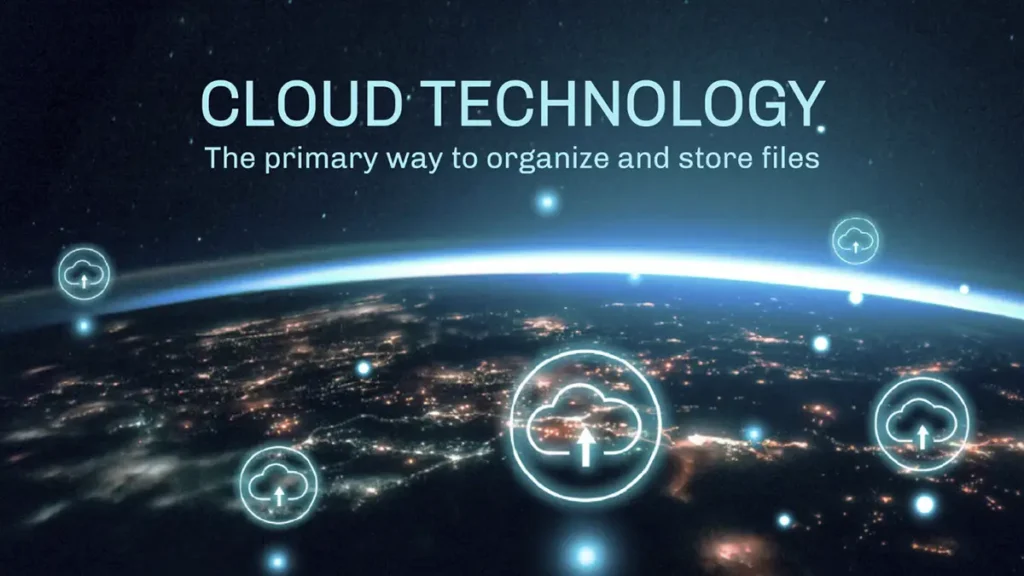Best IT Business Startup Ideas to Launch in 2025
The demand for IT business startup ideas is higher than ever. From healthcare to finance, technology business startups are reshaping industries and attracting strong investor interest. In 2021, 16% of Americans engaged in startups, showing how entrepreneurship is on the rise.
The pandemic accelerated digital growth, pushing companies toward apps, online tools, and data-driven systems. This shift created space for fresh tech startup ideas that solve real-world problems. Even small ventures with limited resources can scale quickly. For entrepreneurs, IT startups now offer the best mix of opportunity, flexibility, and growth.
Why Start an IT Business?
There are several benefits to starting an IT company today as compared to other types of businesses. There is a need for almost every IT solution, and willingness is high. Every industry has been completely transformed.
Technology is now a fundamental aspect for any company. It’s used for operational activities, internal and external communication, and even customer interactions.
So, how to start a tech business? Endless possibilities now exist. There is a need for an IT solution business to provide basic, essential services using innovative strategies. The most significant positive is the availability of endless markets. A platform can easily change its user base from a close geographical area to the entire world.
Costs are often lower. Founders can test how prototypes work using simulation tools. Hence, they can easily improve and scale them with little to no investment in infrastructure.
Global reach is another advantage. Digital solutions enable interaction across the world. It just takes a few keystrokes to get integrated with diverse markets and user bases. Flexibility is the other factor that distinguishes IT ventures. Enterprises can adapt rapidly, combine feedback, and evolve effortlessly.
Below are some of the potentials:
- Profitable businesses can be set up with no initial heavy investments.
- Increasing demand for digital products and services in every country.
- Access to markets and audiences from anywhere in the world
- Opportunity to adapt quickly with user-driven improvements.
The landscape is unique for entrepreneurs. Learning how to start a tech business today provides you with great freedom and potential for expansion. IT businesses blend innovation with essential needs. They cater to evolving economies and markets. By providing value, they prove to be vital to the economy of the future.
Top IT Business Startup Ideas
The advancements in technology create disruptions in the industry. With each disruption, new opportunities become available for entrepreneurs to pursue and invest in. The ‘IT Business Startup Ideas’ define the building blocks of companies. These can be both profitable and scalable.
Each of the sections below showcases the tech startup ideas that are leading in popularity. Discover their potential and how they operate.
Cloud Computing Services

The flexibly structured infrastructure, along with storage that cloud computing delivers, is termed ‘Cloud Computing Services’. It replaces the expensive and bulky hardware by being a more affordable and secure, and scalable online platform.
- Benefits: Lower capital investments, accessed to freely available data from any location. The services can be scaled flexibly.
- Tools: AWS, Google Cloud, and Microsoft Azure.
- Challenges: Security compliance and complex procedures that are involved during migration.
This model works well because organizations need to lower their information technology expenses. Small businesses are captured by startups providing custom cloud packages. Healthcare professionals need compliant cloud storage.
Educational institutions require tools for remote teamwork. Niche cloud service providers can position themselves on managed hosting or private cloud systems. The global expansion of remote work continues to drive the demand.
AI-Based Solutions

AI systems facilitate the automation of workflows and improve decision-making control. They allow increased tailoring of one-to-one service delivery to clients. It is also one of the hot technology startup business ideas today.
- Benefits: Improved productivity and efficiency, fewer human blunders, and enhanced precision.
- Tools: TensorFlow, OpenAI APIs, PyTorch.
- Challenges: Compliance scrutiny, high initial investment, and ethical concerns.
Businesses integrate AI technologies for use in predictive analytics, chatbots, and fraud detection. It is also used for recommendations in the retail sector. In the medical field, AI is used for diagnostic systems. Small startups can develop AI-enabled SaaS platforms aimed at specific markets.
They face less competition and easier technology adoption. AI-based tech ideas, especially in logistics and customer service, grow at an accelerated rate.
Cybersecurity Services

Cybersecurity deals with systems, networks, and even data. It requires a lot of protection. Hence, it is among the most critical IT Business Startup Ideas.
- Benefits: High demand, recurring contracts, critical across sectors.
- Tools: SIEM platforms, firewalls, and penetration-testing software.
- Challenges: Increasing cybercrime, constant evolution, and the shortage of experts.
Businesses continuously face breaches of sensitive data. Due to a lack of in-house expertise, small to medium-sized companies rely on specialized firms. Stable revenue can be generated from subscription-based managed protective services. Focus on compliance services to industries such as finance or health care.
Cybersecurity startups can diversify into training, employee threat detection systems, or systems dealing with ransomware recovery. This idea provides longevity, as digital security and protection will always be in demand.
IT Consulting

IT consulting integrates the objectives of a company with technology. It assists companies in adopting systems, enhancing efficiency, as well as minimising expenses.
- Benefits: Low startup expenses, varied clientele.
- Tools: Project management applications, analytical dashboards, cloud technologies.
- Challenges: Needs trust, significant reputation, as well as extensive technical knowledge.
In today’s digital evolution, consultants still hold value. Smaller companies need guidance on the cloud. Larger companies need assistance with the implementation of ERP systems. Process audits or software recommendations can be the starting point for freelancers.
Building repute with the help of certifications increases authority. As demand is from every field, consulting provides a stream of steady ideas for a tech startup.
App Development

Mobile application development helps companies connect with their clients directly. It remains one of the most profitable ideas for tech startups because of the value that it brings.
- Benefits: Global requirement, repeat maintenance contracts, and cross-industry potential.
- Tools: Flutter, React Native, Swift, and Kotlin.
- Challenges: High competition for retention, saturation, and app discovery.
Restaurants depend on apps for ordering, while fitness trainers have subscription platforms. Retailers also require mobile commerce channels. Hence, entrepreneurs can make mobile apps to scale quickly. If an app targets a particular niche, the competition reduces, and adoption becomes stronger.
If you offer cross-platform development, the reach will increase. This startup approach is highly profitable for freelancers and even larger enterprises. This is due to the ongoing demand from businesses for continuous updates, providing recurring revenue.
SaaS Products

SaaS (software-as-a-service) permits the user to access an application online. Instead of a single purchase option, users now pay a subscription fee.
- Benefits: Worldwide users, easy global expansion, predictable cash flow with renewals.
- Tools: Stripe, AWS, Docker, Kubernetes.
- Challenges: Maintenance, user migration, and server downtime.
These include invoice and CRM systems, and systems for managing projects. Each product can aim to address specific niche challenges. Many businesses adopt SaaS for its simplicity and affordability.
Entrepreneurs should prioritize user-friendly interfaces and reliable uptime. SaaS applications continue to top IT business startup ideas because of the cross-industry potential and subscription-based recurring cash flow.
Blockchain-Based Services

Blockchain technology keeps records and secures transactions on decentralized ledgers. Its applications reach far beyond cryptocurrencies.
- Benefits: Transparency and fraud prevention, alongside decentralization.
- Tools: Ethereum, Solidity, and Hyperledger.
- Challenges: Regulatory compliance, scalability, and energy-intensive operations.
Startups can build decentralized finance applications, NFT marketplaces, or supply chain trackers. Healthcare companies manage records using blockchains, while retailers require transparent logistics.
Entrepreneurs providing smart contract platforms target financial institutions. Innovative business models stem from token-based ecosystems. The value proposition of blockchain services remains strong as industries seek greater transparency and efficiency.
IoT Solutions

It’s notable how the Internet of Things helps in connecting devices to share and analyze data. It allows every sector to automate routine work and obtain insights.
- Benefits: Predicting maintenance, enhanced efficiency, and improved monitoring.
- Tools: Raspberry Pi, Arduino, AWS IoT, MQTT.
- Challenges: Device cost and security concerns.
Some applications are smart homes, healthcare connections, and logistics monitoring. Farmers can also utilise IoT sensors to monitor crop health. Factories can benefit from it by monitoring the machine performance. Energy companies track their consumption to improve efficiency.
Profit-driven startups can design niche IoTs, for instance, systems for smart agriculture and advanced waste management. Such functionalities and smart devices offer great profit and growth for any tech startup.
Web Development

Creating a website remains crucial for any business wanting an online presence. Hence, a website that operates effectively is necessary.
- Benefits: Wide range of projects with increased revenue, constant demand, and flexible growth opportunities.
- Tools: WordPress, React, Django, and Node.js.
- Challenges: Competition, client acquisition, and price sensitivity
Creating eCommerce stores, membership platforms, and business websites are the best options for entrepreneurs. Increased demand for clients comes from optimized SEO. Recurring revenue comes from hosting and website maintenance services.
Small business-focused startups can expect consistent projects. Marketability is enhanced by combining design and development services. It is an evergreen segment of IT Business Startup Ideas.
AR/VR Solutions

Digital elements are enhanced through Augmented Reality. Virtual Reality creates a whole immersive space. The two combined lead to innovative technology startup ideas.
- Benefits: Outstanding experiences, fast adoption in training and in retail.
- Tools: Unity, Unreal Engine, ARKit, ARCore.
- Challenges: High cost of hardware and slow adoption of the technology.
To preview their virtual products, retailers depend on AR. Real estate companies offer VR tours to showcase properties. Corporations also hold training in virtual environments. Hence, startups can offer AR marketing campaigns or VR educational content.
Those solutions offer opportunities that are ready for the future across multiple industries. Those entrepreneurs who focus on developing immersive applications are positioning themselves early in an expanding market.
How to Start a Tech Business
The ability to start a technology-based company takes time and self-control. Building starts with a goal centred on growth and sustainability. A number of entrepreneurs consider the IT solution business model. It enables them to provide scalable services to clients and preserve recurring revenue.
So, how to start a tech business? Follow these steps. They provide a strong basis for success in the highly competitive world of technology.
- Validate Your Idea
Every business has real problems to figure out. Hence, test your idea with potential users and gather feedback. Important feedback is necessary before committing too many resources.
- Research the Market
Identify your competitors and industry trends. Identify the gaps. Look into the possible solutions for customer pain points.
- Build the Right Team
In the world of business and technology, there is a need for technical and non-technical connections. Create a team that will bring a balance. Vision and trust are equally important.
- Secure Initial Funding
Calculate the investment you will need. You could self-fund, seek angel investors, or venture capitalists. Early spending should be controlled to utilise resources efficiently.
- Create a Minimum Viable Product (MVP)
Build a prototype of your solution. Make sure the product has essential features to meet the customer demands. Launch it quickly and frequently make adjustments.
- Launch and Collect Feedback
Encourage your users to document their experience after the product has been launched. Real-world testing will provide appropriate feedback. Use the data and feedback to make improvements.
- Scale the Business
If the product is proven to be working, it’s time to expand. Marketing and customer relations should be enhanced. Business partnerships can be formed for a greater reach.
Final Thoughts
IT business startup ideas show how technology is driving growth across industries. The real opportunity for entrepreneurs lies in solving problems with scalable solutions that meet customer needs. Areas like cloud, AI, SaaS, cybersecurity, IoT, AR, and blockchain hold strong global demand and long-term potential when approached with the right strategy.
Successful technology business startups validate concepts early, analyze demand, and refine solutions as markets evolve. Tech startup ideas are not only about following trends but about creating meaningful impact. With careful planning and execution, even small ventures can grow into sustainable companies that contribute to the future digital economy.






